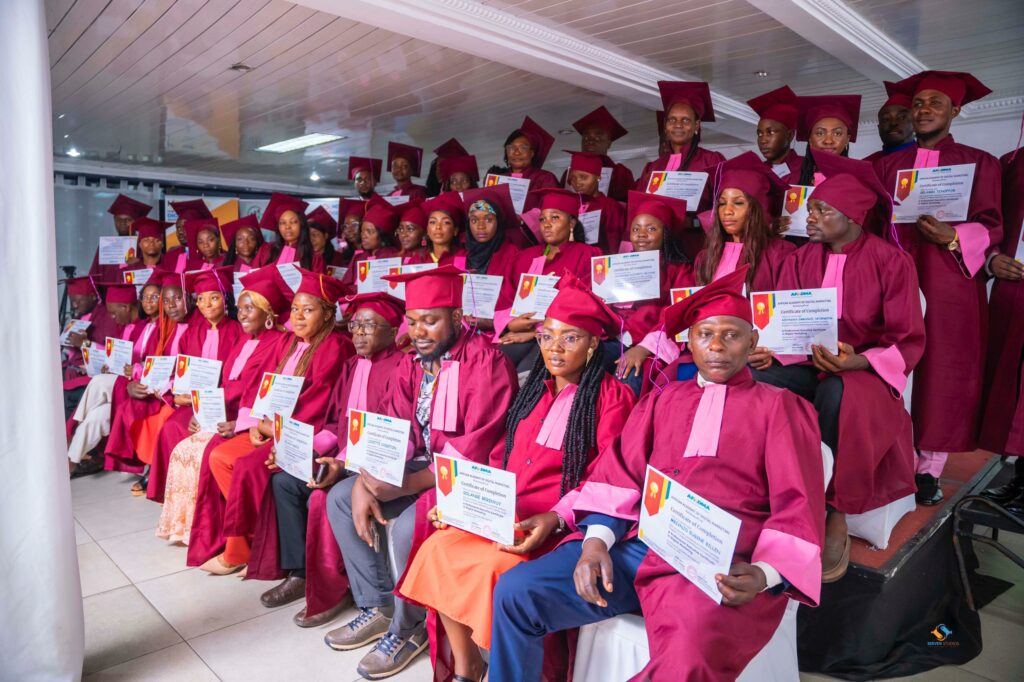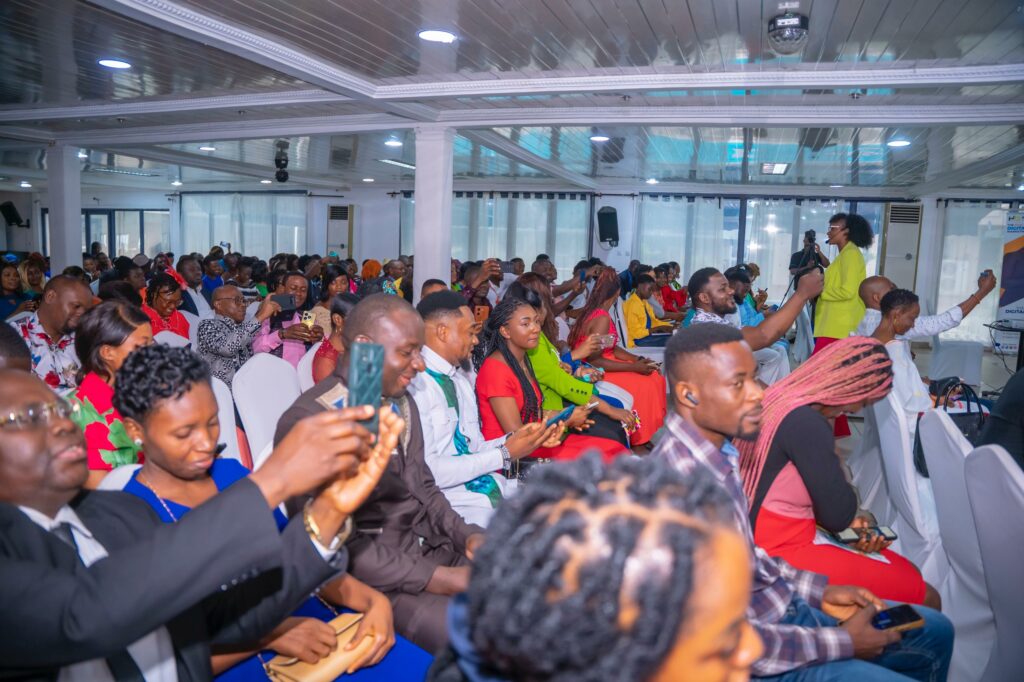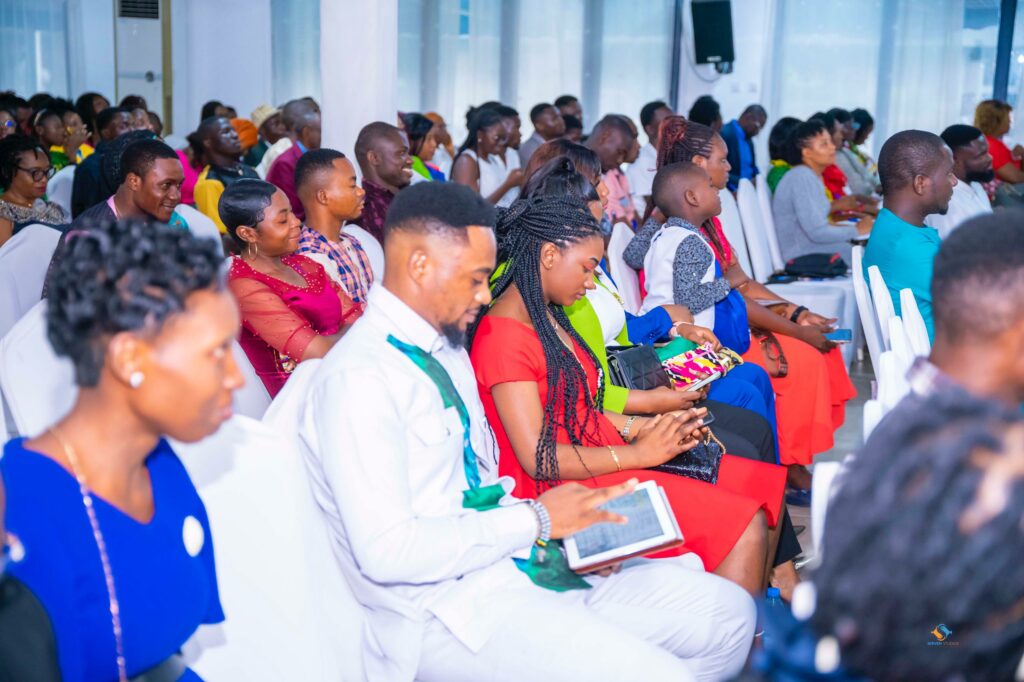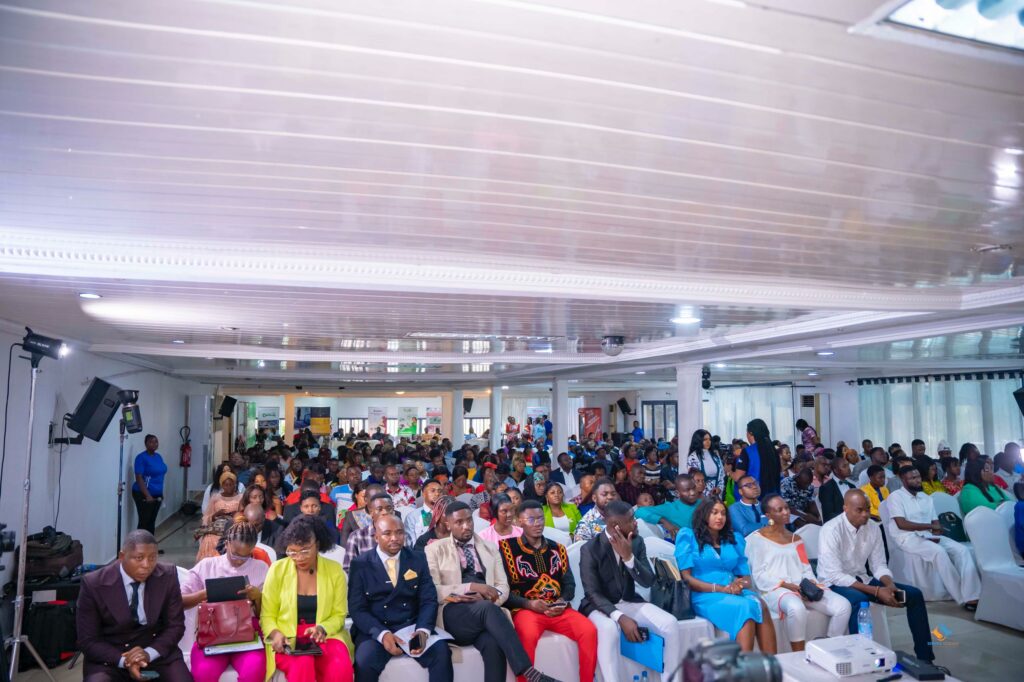In an era where technology is reshaping societies and economies, digital skills have become essential for competitive advantage. The African Academy of Digital Marketing (AFADMA), a digital marketing institution based in Bonaberi, Douala, has positioned itself as a key player in Cameroon’s digital landscape. But will AFADMA alone be enough to drive Cameroon’s digital emergence?
Founded by Mr Henri Owona and Mr. Paul Azinwi, AFADMA has a clear mission: to equip Africans with essential digital marketing skills to thrive in the digital landscape. Over the past two years, they have trained 416 students, from beginners to specialized practitioners. Their training programs cater to a wide range of digital needs, offering both onsite and remote learning to adapt to learners’ circumstances.
On October 26th, Mr Henri and Mr Paul hosted the third Africa Digital Marketing Summit in Cameroon, which attracted over 500 participants eager to learn about digitalization and artificial intelligence. The summit focused on empowering attendees with knowledge about digital possibilities and the importance of establishing a purposeful online presence. They emphasized that digital footprints—everything individuals do online—could shape their digital identity, a crucial factor in today’s interconnected world.
For many attendees, AFADMA’s training has led to life-changing transformations. Marie, a recent graduate of AFADMA, shared, “Taking the Digital Marketing course at AFADMA did not only impact my career; it completely changed my mindset and my professional status—from a job seeker to a worker. Joining AFADMA was the best decision I made in 2023… this decision will remain one of the best footprints in my professional career.” Marie’s testimony highlights how AFADMA’s programs are helping young Cameroonians access new career opportunities, showing the program’s broader impact on personal growth and career development.
Digital skills are no longer an advantage; they are a necessity. According to the World Economic Forum, by 2030, 85 million jobs will be displaced by technological advancements globally, while 97 million new roles, mainly requiring digital skills, will be created. As of now, sub-Saharan Africa lags in this digital race, with fewer than 10% of its population being online regularly. This lack of digital access and skills hinders economic growth and limits job opportunities.
AFADMA’s role in bridging this gap is significant. By training Africans in digital marketing, AFADMA is helping individuals develop capabilities in areas that drive modern business, including social media management, search engine optimization, content creation, and data analytics. These skills are not only in high demand worldwide but are particularly crucial for Africa, where a growing youth population needs opportunities in high-growth sectors. In Cameroon, where the youth unemployment rate remains high, initiatives like AFADMA’s are invaluable in driving economic inclusion.
The economic impact of lacking digital skills is substantial. When a country’s workforce is under-equipped digitally, it faces barriers to participating in a global economy increasingly powered by technology. For Cameroon, the digital skills gap hinders the nation’s ability to attract foreign investment, foster innovation, and enhance productivity. Companies struggle to modernize, and small businesses miss out on expanding their reach online.
Infrastructure challenges make worse these issues. Christopher, an attendee at the Africa Digital Marketing Summit, expressed, “Another challenge in digital marketing is the issue of light supply. Once there’s no electricity, the Internet supply is equally disrupted, and that has been a lot of hindrance to me.” Christopher’s experience reflects the day-to-day struggles many face in Cameroon when trying to build digital skills or maintain an online presence. Reliable access to electricity and internet remains a significant barrier, and these limitations can make it difficult for digitally skilled individuals to leverage their expertise effectively.
A digitally deficient economy also suffers socially. The youth face limited job opportunities, while businesses struggle to tap into digital commerce or connect with international clients. This adds to the poverty cycle, as traditional industries decline and job-seekers lack the skills for emerging fields. For Cameroon to achieve its Vision 2035 goal of becoming an emerging economy, addressing digital skills deficiency is critical.




















While challenges are present, Cameroon’s digital landscape is also ripe with opportunity. The country’s young, dynamic population represents a potential force in digital industries if equipped with the right skills. Initiatives like AFADMA’s can be instrumental in helping Cameroon capitalize on these opportunities. By building expertise in digital marketing, individuals can become independent freelancers, create their own digital businesses, or enhance the reach of local businesses online. This growth not only benefits individuals but also strengthens the economy through digital transformation.
Moreover, Cameroon’s push toward digitalization aligns with the African Union’s digital transformation strategy, which aims to create a single digital market in Africa by 2030. This alignment means that digitally skilled Cameroonians could compete for opportunities across Africa, further supporting economic growth at home.
AFADMA’s impact is promising, but digital emergence cannot rely solely on training institutions. For digital skills to translate into economic growth, other key players must join the effort. Reliable internet access, consistent electricity supply, and policy support from the government are all essential. Network providers need to expand connectivity to rural areas and improve internet speeds to support remote work and digital business. Similarly, electricity production and supply companies must address power outages that hinder digital operations.
Only with collaborative efforts across these sectors can Cameroon fully harness the benefits of digital skills training. AFADMA’s role in training individuals is foundational, but it needs strong infrastructure, policy backing, and investment to be effective on a national scale. Vision 2035 for Cameroon’s emergence will require a cohesive ecosystem that supports digital skill development, job creation, and business growth.
AFADMA’s contributions to digital skills training in Cameroon are commendable, and their impact on young professionals is evident. However, achieving true digital emergence requires a united approach where training institutions, infrastructure providers, and policymakers align to create an environment conducive to digital growth. Only then can Cameroon unlock its full potential in the digital age, paving the way for a digitally skilled workforce that can compete globally and realize Vision 2035.
If you are interested in learning Digital Marketing at AFADMA, they are launching a new batch that will kickstart on Saturday 9th November 2024. Enroll now by contacting them directly via the following numbers: (+237) 674 860 236 / (+237) 675 950 204